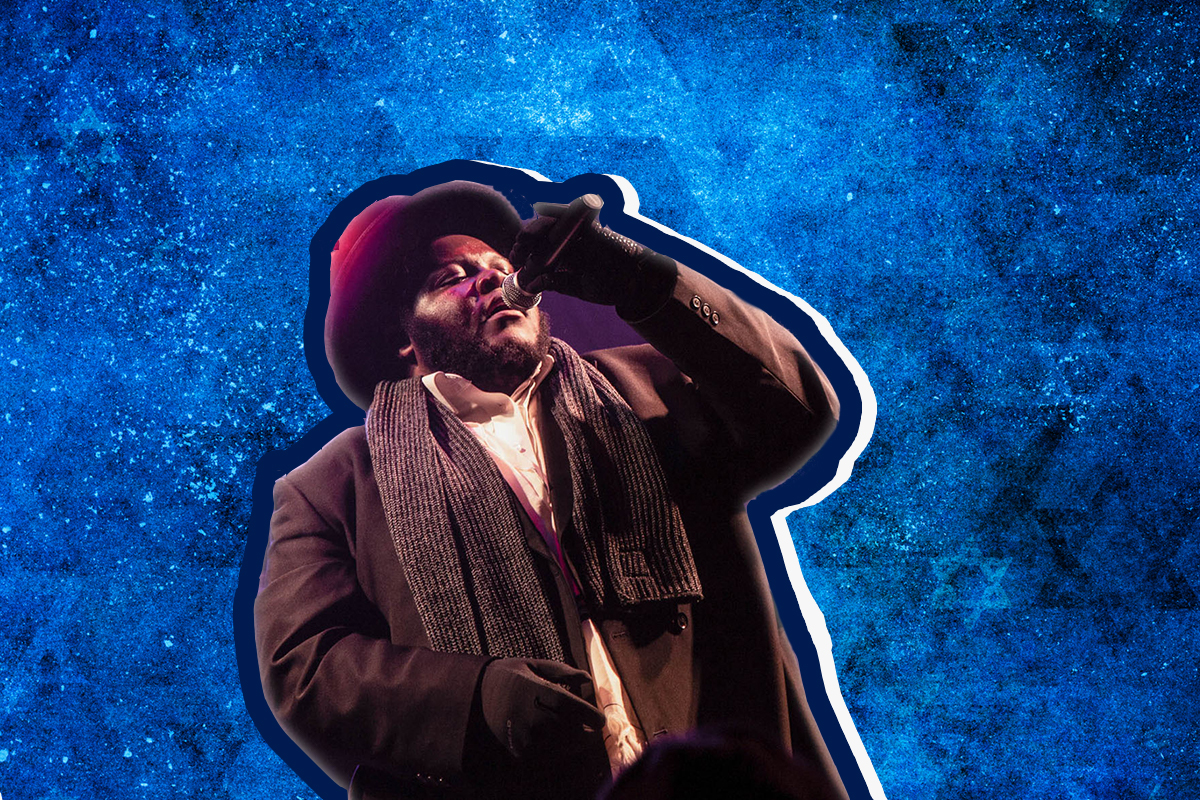It’s been an unusually strong month for new Jewish music and authentic Black Jewish representation in pop culture — and we’ve got Daveed Diggs‘ new hit “Puppy for Hanukkah” to thank for it. Given that we’ve already been blessed with the lyric “Adonai ain’t gonna trip,” we were prepared to be satisfied with what this winter had already given us (dayenu). But another bop has appeared just in time for Hanukkah, and it’s the greatest version of “Hava Nagila” we’ve ever heard.
Orthodox Jewish rapper Nissim Black released “The Hava Song” on his 34th birthday this past Wednesday. The first five seconds are pretty recognizable from any b’nai mitzvah — and then the beat drops. In Black’s own words: “I know it feels familiar / but this is a brand new groove.”
As JTA reports, the song is about “gratitude, his place in Jewish society and even allusions to the coming Messianic age.” It’s truly hard to pick a favorite turn of phrase from the lyrics, with such choice gems as, “Got a mazel tov for the game / But I really do the thing,” and “party like it’s 5999 / they’re gonna see us in our prime.” But the most powerful line just might be: “We gonna sing it out loud / Black, Jewish, and I’m proud.”
Black is a master of blending cultures, and this track is no exception. Alma talked to him back in February about his journey to Orthodox Judaism. Born Damian Jamohl Black in Seattle to two rapper parents, he identified as Muslim as a child and as Christian in his teens.
In 2008, as he began to find success in his musical career, he “got in an altercation with another artist, and this altercation led to a kill or be killed situation.” This led Black to reflect on how he’d ended up where he was. “Eventually, all my praying and soul searching led me to Judaism,” which felt very natural to him. Black’s neighborhood growing up had a large Jewish population, and he used to walk by a synagogue on his way to elementary school. He ended up coming full circle and moving back to that neighborhood with his wife after they both converted to Orthodox Judaism under Sephardic Rabbi Simon Bezaquen. They married in 2008, but re-married after their conversion in an Orthodox ceremony in 2013 at the Sephardic Bikur Holim Congregation in Seattle, Washington. The couple then made aliyah in 2016, and now live in Jerusalem.
Black has since found major success with hits like “Mothaland Bounce,” in which he talks proudly about his identity in an attempt to “just sort of lay it all out there, and make a statement, so I could at least limit the questions.” In the video, he incorporates imagery from his favorite movie, Coming to America, to express his feelings about culture clash.
All of this is to say: If you want to spend a Hanukkah night dancing alone in your kitchen, “The Hava Song” is the perfect choice.



